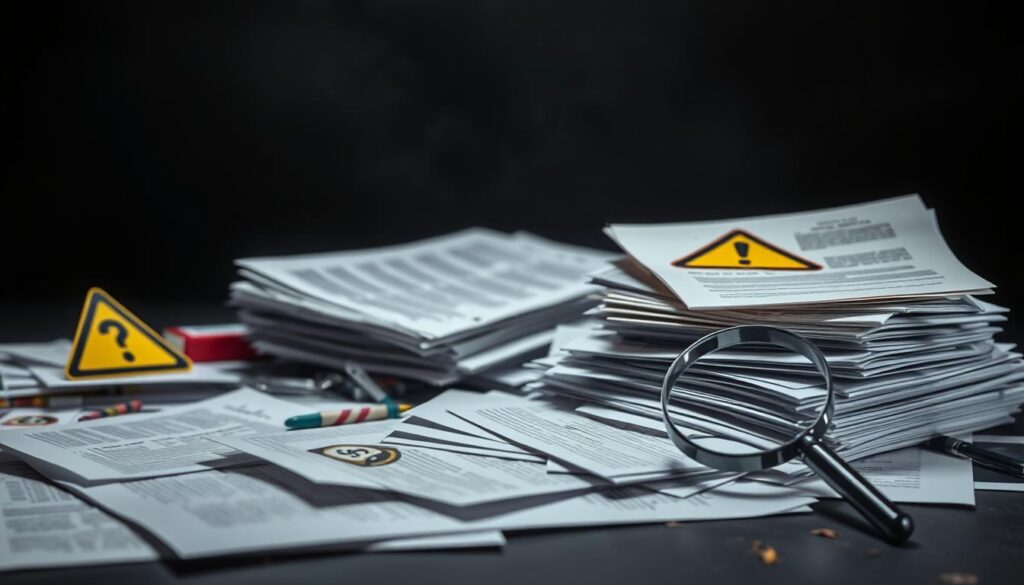Discovering you’ve won a prize can spark excitement, but staying grounded is crucial. Legitimate promotions operate under strict federal guidelines like the Deceptive Mail Prevention and Enforcement Act, which prohibits requiring payments or purchases to claim rewards. If an offer demands money upfront, treat it as a red flag.
Notifications may arrive via email, text, or traditional mail. While contact methods vary, always verify the sender’s authenticity before responding. Scammers often mimic real organizations, so cross-check details using official websites or customer service lines—never rely solely on information provided in the initial message.
Pressure to act quickly is another warning sign. Reputable companies give winners ample time to validate claims. Use this period to research the promotion’s legitimacy. Contact state consumer protection agencies or organizations like the Better Business Bureau if questions arise.
Protecting personal information is essential during verification. Avoid sharing sensitive data unless you’ve confirmed the sweepstakes’ validity through independent sources. Remember: genuine opportunities prioritize transparency and never compromise your financial security.
Key Takeaways
- Authentic sweepstakes never require payments to claim prizes under federal law
- Verify notifications through official channels before taking action
- Urgent deadlines often indicate fraudulent schemes
- Use third-party resources to confirm promotion legitimacy
- Safeguard personal information during verification processes
Understanding the Basics of Sweepstakes and Prizes
Navigating promotional offers requires knowing how legitimate opportunities operate. Sweepstakes award prizes through random selection, distinguishing them from skill-based contests. Both formats share one critical rule: participants should never pay to play.
Defining Sweepstakes and Contests
Sweepstakes rely solely on chance, making every eligible participant’s odds equal. Contests may involve voting or creative submissions, but reputable versions still prohibit purchase requirements. A key difference? Skill-based competitions can legally limit winners to those meeting predefined criteria.
Lottery rules clarify boundaries. As one legal expert notes:
"Combining prize, chance, and payment creates an illegal lottery—only governments can run these."
This framework protects consumers from schemes disguised as harmless games.
Legal Guidelines and Ethical Considerations
Federal laws require companies to disclose all promotion terms publicly. Prize value claims must match market prices, and entry methods must remain consistent for buyers and non-buyers. The Deceptive Mail Prevention Act specifically bans misleading prize notifications.
Ethical operators avoid urgency tactics or vague conditions. They provide clear timelines for claiming rewards and detailed tax documentation for high-value awards. Always verify these elements before engaging with any contest or sweepstakes offer.
What to Do If You Win a Sweepstakes Prize
Sudden prize announcements demand careful scrutiny. Genuine offers provide clear paths for validation, while scams crumble under basic verification. Start by treating every notification as unconfirmed until proven legitimate through independent research.

Secure Claim Process Essentials
Initiate verification by visiting the organization’s official website through search engines—never click links in messages. As the FTC advises:
"Legitimate businesses encourage winners to confirm offers through established channels, not rushed demands."
Contact customer service using numbers from trusted directories or the company’s authenticated portal. This prevents sharing sensitive data with imposters posing as representatives.
Authenticity Confirmation Tactics
Cross-reference the sponsor’s name with watchdog organizations like BBB or AARP. Check email domains for exact matches with official corporate addresses—scammers often use subtle variations like "support@company-co.com".
Request written documentation detailing winnings delivery timelines and tax implications. Reputable operators provide this willingly, while fraudulent schemes avoid paper trails. Verify all details against the original contest rules published on the sponsor’s authenticated platform.
Identifying and Avoiding Sweepstakes Scams
Prize scams exploit excitement with sophisticated traps. Fraudulent schemes cost Americans millions annually, often targeting vulnerable groups through fake notifications. Pennsylvania authorities reported sweepstakes fraud accounted for 5% of all scams in 2017—a statistic that underscores the need for vigilance.

Recognizing Common Scam Warning Signs
Three patterns expose most fraudulent offers:
- Requests for money to cover taxes or fees
- Demands for sensitive personal information
- Pressure to act within unrealistic deadlines
Legitimate sponsors never require upfront payments. As the FTC warns:
"No authentic sweepstakes asks winners to wire funds or share credit card details to claim rewards."
| Scam Indicators | Legitimate Offers |
|---|---|
| Foreign lottery claims | U.S.-based sponsors |
| Secretive instructions | Public contest rules |
| Unverified contact methods | Official communication channels |
Investigating Suspected Prize Notifications
Cross-check unexpected wins through these steps:
- Search the sponsor’s name + "scam" in major search engines
- Contact state consumer protection agencies
- Verify offers through BBB Scam Tracker
Protecting Your Personal Information
Never provide Social Security numbers or account details. Monitor credit reports after suspicious interactions. Report phishing attempts to the FBI’s Internet Crime Complaint Center to help combat financial fraud.
Practical Steps to Secure Your Prize and Personal Information
Protecting your assets starts with knowing where to turn when issues arise. Immediate action can prevent financial loss and identity theft while preserving evidence for investigations.
Contacting Official Sponsors and Authorities
Begin by confirming the promotion’s legitimacy through the sponsor’s verified website or customer service line. State consumer protection offices provide localized guidance for suspected scams. If you shared sensitive data, contact your bank immediately to freeze accounts or monitor transactions.
The Federal Trade Commission recommends:
"Document every interaction with promoters, including dates, names, and demands made. This creates a paper trail for investigators."
Reporting Fraudulent Activities Effectively
File a complaint through ReportFraud.ftc.gov to alert federal authorities. For mail-based schemes, notify the U.S. Postal Inspection Service. These agencies collaborate to dismantle cross-state lottery fraud operations.
Key reporting channels include:
- Federal Trade Commission’s online portal
- State attorney general’s office
- National Fraud Information Center
Legitimate promoters always disclose redemption steps and tax obligations upfront. If details seem vague or pressured, treat the offer as suspicious until verified through independent sources.
Conclusion
Receiving unexpected sweepstakes notifications demands balanced caution and action. Start by confirming the prize through the sponsor's official website or customer service line—never use contact details from the initial message. Reputable companies provide clear verification steps without urgent demands for money or sensitive data.
Effective protection involves three pillars: independent research, documented communication, and information security. Cross-check every notification with consumer protection agencies before responding. Remember—authentic contests fund all taxes and fees through their budgets.
Smart participation means understanding evolving risks. Educate yourself about common scam patterns while enjoying legitimate opportunities. Allocate time to review contest rules thoroughly before entering any promotion.
When approached correctly, sweepstakes offer exciting possibilities without compromising security. Stay vigilant, verify rigorously, and report suspicious activity to safeguard both your winnings and personal assets.
